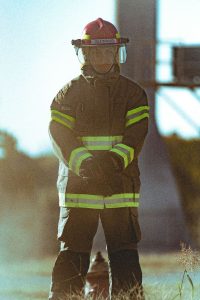Organizational Betrayal and Moral Injury
By: Robert Avsec, Battalion Chief (Ret.) and FSPA Operations Chief

This is from a post over on LinkedIn yesterday by Jason Scriven, Counselling Graduate Student and Therapist in Training:
What I learned this week as a therapist in training:
The moral injury is often worse than the trauma.
I spent a couple of days last week at the Diversified Rehabilitation Group symposium on first responder mental health. The speakers were a combination of clinicians and first responders (RCMP, police, fire, military), and moral injury was mentioned in almost every session.
One RCMP (Royal Canadian Mounted Police) member who was involved in a line of duty shooting described the lack of support from the “white shirts” as more damaging than the trauma from the shooting.
What does moral injury look like?
➡️Vietnam veterans returning to a hostile public due to the negative perception of the conflict. Many Americans viewed the war as a mistake and struggled to separate the war from the soldiers fighting it.
➡️Firefighters being asked to run towards burning buildings and then being criticized by senior leadership when they need to take a knee for their mental health.
➡️Any breaking of the compact between first responders and departmental/political leadership that says, “I will die if necessary to do my job,” but in return, you have my back.
Yes, we can treat the trauma associated with being a first responder and yes we can be mindful of the effects of betrayal by those in command.
——————————-
This post was inspired by Cpl. Jessica Brown, retired Fire Captain Steve Farina, and Cpl. Mark Bouchard.




Responses